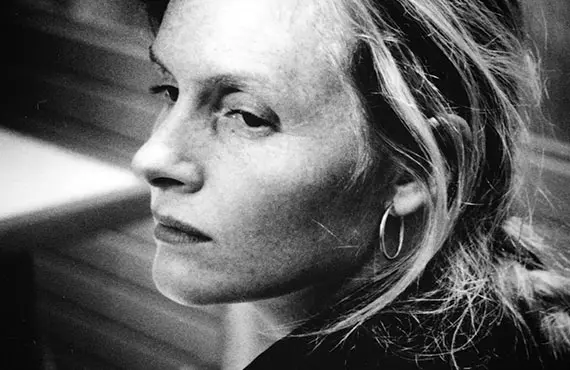Netflix's Sophie: A Murder In West Cork and ‘The OJ Effect’
-
 The victim is pushed aside in Sophie: A Murder In West Cork. (Netflix)
The victim is pushed aside in Sophie: A Murder In West Cork. (Netflix)The editor-in-chief of the daily newsletter Best Evidence, Sarah D. Bunting knows a thing or two about true crime. Her weekly column here on Primetimer is dedicated to all things true-crime TV.
In any story about an unsolved crime, the crime — by virtue of being unsolved — ends up at the center, no matter how hard the creators might try to focus on the victims. That's the case with Sophie: A Murder In West Cork, Netflix's new three-part docuseries on the 1996 murder of French producer Sophie Toscan du Plantier in the remote Irish town of Schull. Even the title wants the victim to come first, but the twisty details of the case keep elbowing Sophie aside.
That's not to say that Sophie: A Murder In West Cork is a bad use of three hours; it's well put together and compelling, especially for viewers not already familiar with the case. The production gets fantastic cooperation from Toscan du Plantier's family and friends, as well as the investigating detectives, Irish journalists, and the townspeople of Schull, the latter of whom provide an excellent sense of the region and its community. There is some tricky business with cliffhangers at the ends of the first two episodes, and a handful of interviews and revelations that are cynically positioned a bit too close to the end, but it's nothing regular viewers of true-crime aren't used to, and it doesn't affect the integrity of the storytelling.
Somewhat more troubling is the show's enthusiastic participation of the chief suspect in the case, Ian Bailey, a journalist known for boring entire pubs with his poetry (which is dismissed by one interviewee as "not well developed") — and for beating his partner, Jules, savagely. The docuseries spends a lot of time with Bailey, letting him trap himself in obvious lies, convincing us, if nothing else, that he's definitely guilty of being a tiresome blowhard who needs to be the center of attention.
Given the disposition of the case in both Irish and French courts — which I won't spoil — I can see why the production might have perceived hanging Bailey out to dry as a measure of justice for Toscan du Plantier, but what we end up witnessing instead is what I call The OJ Effect: the notoriety and/or charisma of the accused sucking all the air out of a room ostensibly devoted to remembering or avenging the victim. (Bailey's resemblance to OJ as a defendant doesn't end there, as he unwisely tries to rationalize his assaulting his partner by saying that she had gotten drunk and come at him first.)
This is what the OJs and Baileys of the world do: they leverage their narcissism with self-pitying libel suits and performative griping about "uneducated" small-town police, and I think the docuseries knows that. I also think that you can't have it both ways, and that showing how badly Bailey needs attention means giving him attention — attention that isn't on Sophie, her work, or her family.
Toscan du Plantier's family is articulate and affecting on-camera. Her son, a boy when Toscan du Plantier died, reads from a statement he issued to the people of West Cork after a court decision, and it's very direct and bittersweet, as are his final comments about still going to her house in West Cork because it's still like staying with her. Toscan du Plantier's uncle put together an Association For The Truth About The Murder Of Sophie Toscan du Plantier, which is like a Vidocq Society for a single case, and I would have watched three hours just about the Association's meetings. Sophie tries to put the victim and her survivors at the center of its narrative, and at times it succeeds. At times we feel that loss, and we feel the regrets of Schull residents — that Toscan du Plantier was murdered, that they never shunned Bailey for putting hands on his partner, and that the case remains in its current limbo.
But that limbo is the heart of this narrative. It's the heart of a lot of true crime narratives, from podcasts to Unsolved Mysteries episodes to the kinds of Reddit threads that keep amateur sleuths up all night trying to crack 20th-century cases; it's part of what pulls viewers into stories like Sophie's, and that's not a bad thing, per se. Sophie is a solid sit, sincere and straightforward. But you may wonder by the end if Bailey hasn't gotten away with not only murder, but with stealing the show.
Sophie: A Murder in West Cork premieres Wednesday June 30th on Netflix.
Sarah D. Bunting co-founded Television Without Pity, and her work has appeared in Glamour and New York, and on MSNBC, NPR's Monkey See blog, MLB.com, and Yahoo!. Find her at her true-crime newsletter, Best Evidence, and on TV podcasts Extra Hot Great and Again With This.
TOPICS: Sophie: A Murder in West Cork, Netflix, True Crime